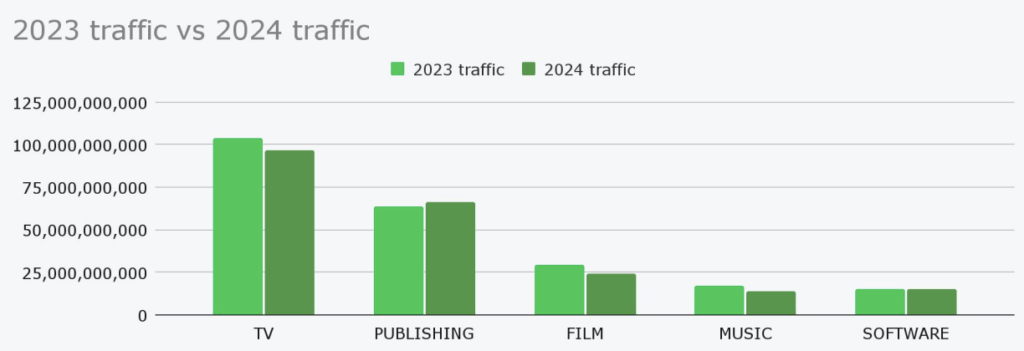Threat intelligence firm Silent Push has reported it uncovered a massive international pirate IPTV operation streaming programming from popular services like Netflix, Disney, Amazon, the Premier League, and others. While the idea of pirated content and illegal streams is nothing new, the size and scale of the operation is what has surprised many.
Silent Push has detailed the operation, claiming it was hosted across more than 1,000 domain names and over 10,000 IP addresses. One of the websites listed in the network, JVTVlive claimed to have 2,000 servers across 198 countries – a claim Silent Push believe is accurate.
Silent Push claims that many of the IPTV services sold subscriptions to access the content – the aforementioned JVTVlive site offered a monthly $15 per month charge for 22,500 channels and 100,000 movies and TV shows. The site has since been taken down and is now in ‘maintenance mode.’
The firm report that it found content from over 20 major brands, including Prime Video, Bein Sports, Disney Plus, NPO Plus, Formula 1, HBO, Viaplay, Videoland, Discovery Channel, Ziggo Sports, Netflix, Apple TV, Hulu, NBA, RMC Sport, Premier League, Champions League, Sky Sports, NHL, WWE, and UFC.
The Audiovisual Anti-Piracy Alliance, an organisation established to protect the interests of content holders including Canal+ Group, DAZN, and Sky, issued a report in 2022 that found pirate IPTV services in Europe cost the industry €3.21 billion in 2021 with pirates generating €1.06 billion in revenue that same year.
Piracy actually declined last year
London-based data company MUSO released its 2024 Piracy Trends and Insights report and found that there was a decline in piracy from 2023-2024.

MUSO found a decline in piracy last year
According to MUSO, TV piracy remains the dominant form of pirated content consumption, noting a total of 96.8 billion visits globally. This is a 6.8% decrease on the previous year, but found that episodic content, particularly anime, is a key driver.
Film piracy also declined in 2024, with visits dropping 18%year on year to 24.3 billion. MUSO does suggest that the decline may be in line with the reduced output of Hollywood titles due to production delays.
The publishing industry is the one sector that saw an increase in piracy last year, fuelled largely by the consumption of manga (which drove over 70% of activity).
It reported that the largest volume of pirate traffic originated in the US with 26,679,214,984 visits, or 12.33% of the total. India trailed behind in second place with just 17,560,992,167 visits. Australia didn’t crack the top 20.

A 2024 Deloitte study found that most pirates cited access to content and not the cost as the primary reasons that they accessed pirated content, with 42% of respondents citing that concern. 40% attributed their piracy to getting quicker access.
25% of respondents admitted to having engaged in password sharing to access streaming services they don’t subscribe to themselves.
